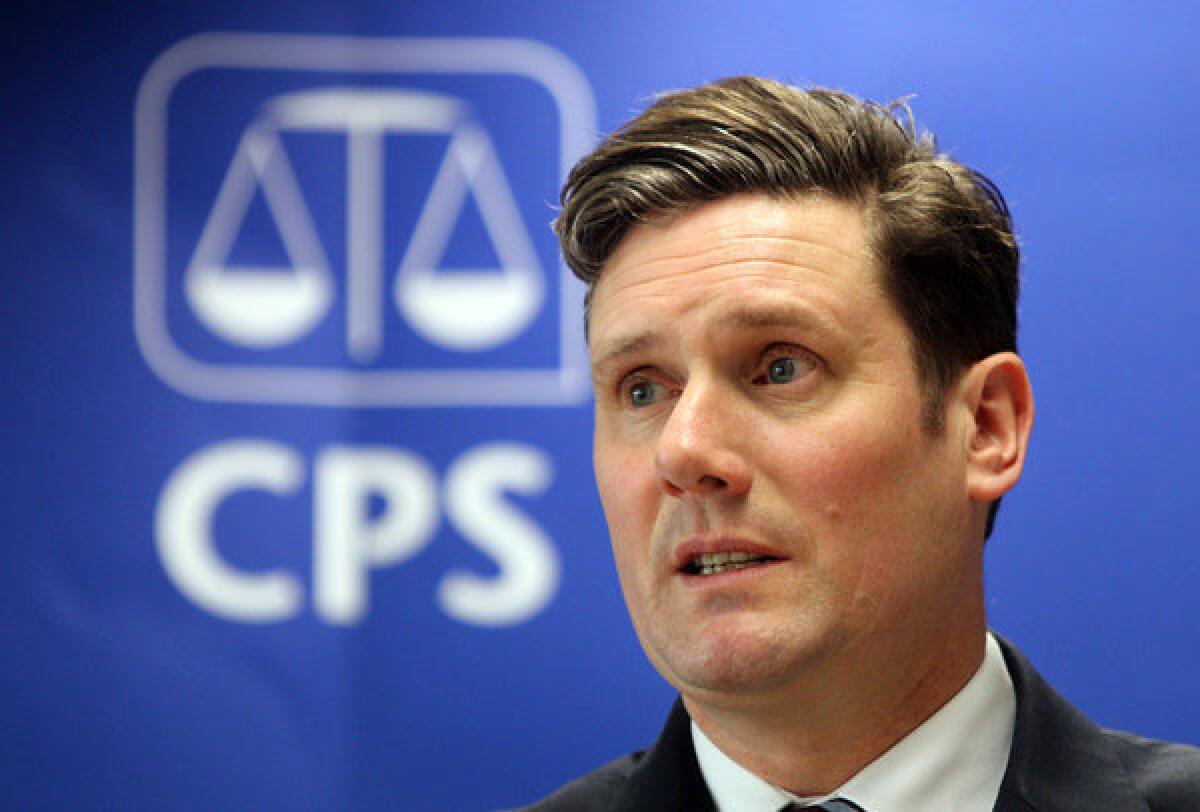Britain issues new guidelines on prosecuting offensive online comments

LONDON – People who post offensive messages on social networks such as Facebook and Twitter should face criminal charges only if their comments are harassing or threatening and not simply in bad taste, according to new legal guidelines in Britain that follow a spate of controversial prosecutions.
Free-speech advocates here have been alarmed in recent months by a number of incidents in which users of social media have been arrested and jailed for posting messages that others deemed repugnant. A 2003 law authorizes such harsh punishment for “indecent, obscene or menacing” communications sent through a public electronic network.
But the law predates the explosion of such new media as Twitter and Facebook, and some police officials say that having to investigate the increasing number of complaints about offensive online messages is distracting them from more serious work.
Keir Starmer, the chief prosecutor for England and Wales, said Wednesday that new guidelines from his office would raise the bar for criminal charges under the 2003 law by limiting most prosecutions to cases involving threatening and intimidating remarks targeted at specific individuals. That would help protect freedom of expression while still allowing authorities to crack down where warranted, he said.
“There are millions of messages sent by social media every day, and if only a small percentage of those millions are deemed to be offensive, then there’s the potential for very many cases coming before our courts,” Starmer told BBC radio. “So we need a sensible way of dividing the messages into those which are more likely to be prosecuted – the threats and the harassment and the breach of court orders – and those that aren’t – the deeply unpopular, the shocking, the grossly offensive.”
Under the new guidelines, most if not all of a recent rash of high-profile cases would probably not have been prosecuted, including a youth who was sent to jail for 12 weeks for posting crude jokes about two kidnapped girls and another young man who was sentenced to 240 hours of community service for declaring on Facebook that British soldiers “should die and go to hell.”
Critics of the prosecutions noted that such comments might raise eyebrows and draw disapproving looks if spoken aloud in a pub, but online they suddenly become criminal offenses. Civil-liberties activists warned of a chilling effect on free speech.
Starmer agreed, and consulted lawyers, police and other experts on setting a higher threshold for prosecution. The new guidelines go into effect immediately but will be reviewed again in March after the British public has had a chance to offer its input.
“It would be stifling free speech if people thought that every time they communicated something which might be deeply offensive or deeply unpopular … then the police were likely to get involved,” Starmer said. “We need to protect the individual against threats and harassment … but free speech has its place.”
For the record, 11:40 a.m. Dec. 19: An early version of this post stated that chief prosecutor Keir Starmer spoke on Tuesday. He spoke on Wednesday.
ALSO:
Britain’s crackdown on Web comments sparks debate
Report finds ‘flawed’ response but no cover-up at BBC
Park Geun-hye projected to be South Korea’s first female president
More to Read
Start your day right
Sign up for Essential California for news, features and recommendations from the L.A. Times and beyond in your inbox six days a week.
You may occasionally receive promotional content from the Los Angeles Times.







